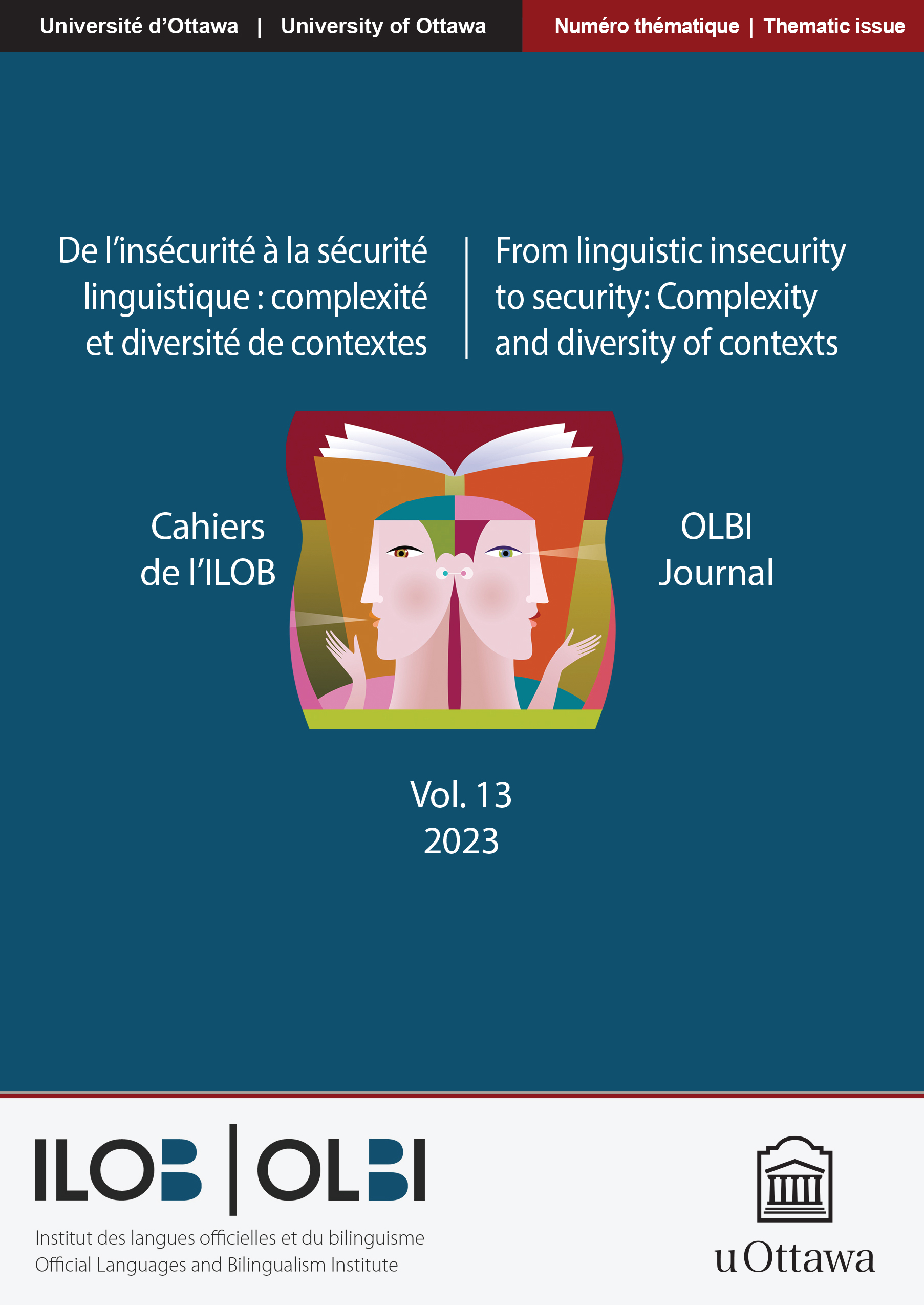Vol. 13 (2023): From linguistic insecurity to security: Complexity and diversity of contexts

Linguistic insecurity has become an important area of concern in recent years, especially in minority-speaking contexts. This interest can be explained, among other things, by the significant consequences that linguistic insecurity can have on individuals’ language practices, social experiences, and educational pathways, as well as on the linguistic vitality of communities. If social institutions, as levers of power, play a definite role in the emergence, maintenance, and reproduction of linguistic insecurity, they can, in turn, play a role in countering linguistic insecurity. That is why it is essential to look beyond linguistic insecurity and study the policies, discourses, practices, and strategies that promote linguistic security.
The articles in this volume address the issues of linguistic (in)security from several angles, and from a variety of disciplinary perspectives and approaches, highlighting its complexity. The articles illustrate the diversity of contexts and causes of linguistic (in)security, as well as its manifestations and consequences for individuals and communities. Case studies from Canada, the United States, Europe, Africa, and Australia show the universal yet situated nature of linguistic (in)security.
Editors of the volume: Catherine Levasseur, Marie-Eve Bouchard, and Constantin Ntiranyibagira.

